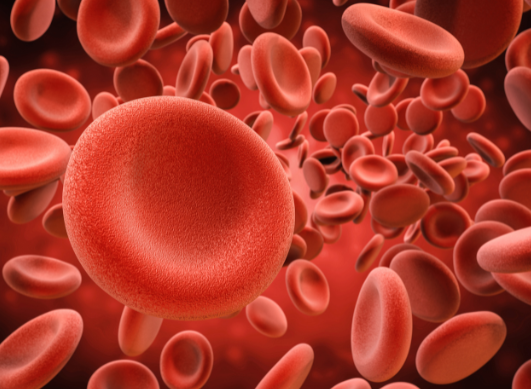Which drugs can cause a low platelet count?
Published 4 Mar 2024 • By Carenity Editorial Team
The role of platelets is to coagulate the blood, preventing significant blood loss in the event of injury.
Which drugs can cause a low platelet count? What can be the consequences of low platelets?
We explain it all in our article!

What are platelets?
Platelets, scientifically known as thrombocytes, are small colourless cell fragments found in the blood. They have the ability to create blood clots to stop or prevent bleeding.
Platelets are produced within the bone marrow, a spongy tissue located inside the bones, where cells at the origin of all blood cells, known as stem cells, are transformed into red blood cells, white blood cells and platelets.
The number of platelets in the blood is counted using automated blood count machines in biology laboratories.
Typically, the normal platelet count is between 150,000 and 300,000 platelets per microlitre of blood.
When this threshold value is exceeded, the condition is known as thrombocytosis, and when the platelet count is too low, this leads to thrombocytopenia.
What are the consequences of a low platelet count?
When the number of platelets falls, the body loses the ability to form blood clots, resulting in a loss of control over bleeding.
The main symptoms of this condition include:
- Ecchymoses (commonly known as "bruises", which appear on the skin following a mild shock), which can appear more easily;
- More frequent bleeding from the nose or gums.
In more serious cases, patients may develop digestive bleeding, the signs of which include black, brown or bloody stool, or vomiting blood.
There is also spontaneous bleeding without trauma, which can occur when the platelet count falls below 10,000 platelets per microlitre.
But generally, a low platelet count is not symptomatic; symptoms only appear when the number of platelets becomes extremely low.
Can certain drugs cause a low platelet count?
Platelet depletion may be due to illness, but can also be caused by certain medications, such as:
Chemotherapy drugs
Many chemotherapy drugs (cancer treatments) cause low platelets. This is a frequent side effect of chemotherapy, and it can be explained by the way chemotherapy works.
The aim of chemotherapy is to eliminate cancer cells, but in the course of its action it can also cause damage to the cells responsible for platelet production in the bone marrow. This leads to a reduction in the number of platelets, if they are not properly renewed.
This side effect can be more or less severe, and depends on the type of chemotherapy administered and the duration of treatment.
There are ways of raising platelet levels if they become too low after chemotherapy: for example, platelet transfusion, or additional treatments such as haematopoietic cell growth factors, or even stem cell transplants.
Aspirin
Aspirin, or acetylsalicylic acid, is an analgesic, antipyretic (fever reducer) and non-steroidal anti-inflammatory drug (NSAID).
The mechanism of action of acetylsalicylic acid relates to platelet aggregation. It inhibits the synthesis of one of the components (thromboxane A2) in platelets, reducing their number.
Taking other NSAIDs such as naproxen, ibuprofen or diclofenac can also lead to low platelets.
For this reason, aspirin and NSAIDs are not recommended for patients with a history of digestive haemorrhage or ulcers, or for those who are at risk of haemorrhage or stomach ulcers because of the risk of bleeding.
Clopidogrel
Clopidogrel, a drug in the anti-platelet agent category, acts as a blood thinner. Its aim is to reduce the risk of clots in blood vessels by preventing platelets from aggregating when there is a risk of cardiovascular accident.
Although it is not intended to reduce platelet numbers, its action on platelet aggregation can lead to a low platelet count.
Heparin
Heparin, used to prevent the formation of blood clots in bed-ridden patients, works by preventing the coagulation cascade.
It has also been found that one of the side effects of heparin, like that of clopidogrel, is reducing the platelets count. For this reason, it is recommended to closely monitor the platelets count prior to the start of treatment and throughout the whole course of treatment.
Take care!
Sources :
Platelets and Thrombocytopenia, Red Cross Blood
Nombre peu élevé de plaquettes (thrombocytopénie), Société Canadienne du Cancer
Méthode et Matériel, Centre de Biologie du Languedoc
Thrombopénie, Centre Hospitalier Universitaire Vaudois
Gamme de médicaments ASPIRINE UPSA, Vidal
Substance active acide acétylsalicylique, Vidal
Gamme de médicament NAPROXENE SODIQUE TEVA, Vidal
CLOPIDOGREL EG LABO 75 mg, Base de Données Publique des Médicaments
Gamme de médicament CLOPIDOGREL ALTER, Vidal
Gamme de médicaments HEPARINE CHOAY, Vidal

 Facebook
Facebook Twitter
Twitter

